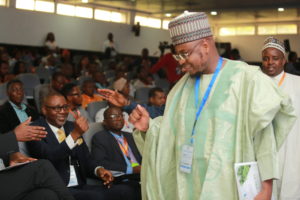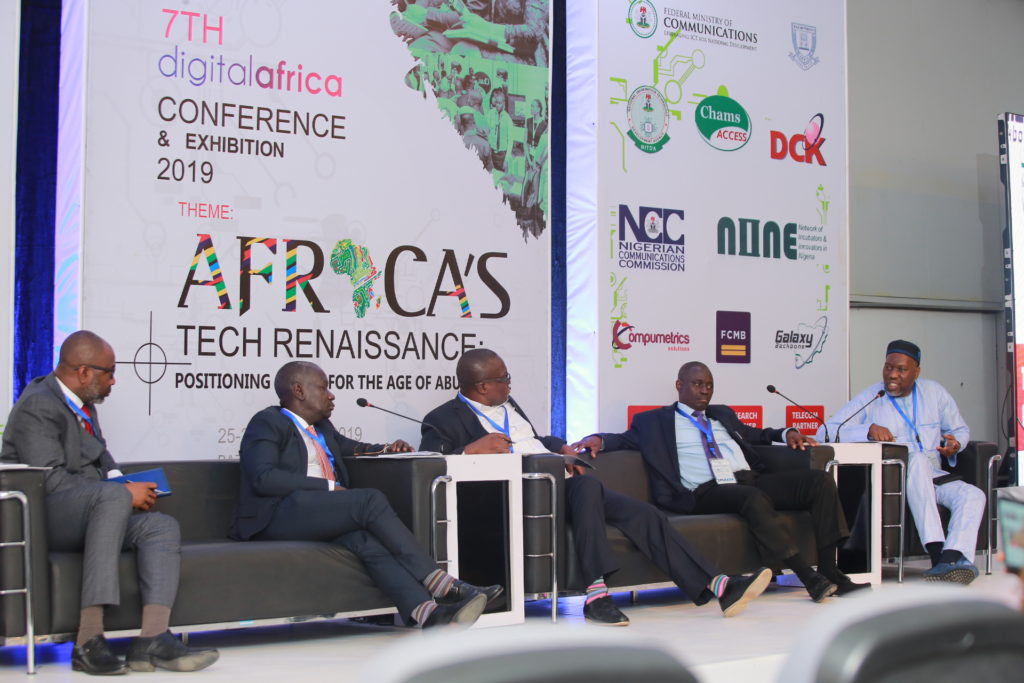Minister of Communications & Digital Economy, Dr. Isa Pantami will today lead the Executive Vice Chairman of the Nigerian Communications Commission (NCC), Prof. Umar Danbatta; Director-General of the National Information Technology Development Agency (NITDA), Mal. Kashifu Inuwa to the 8th edition of the annual Digital Africa Conference & Exhibition.
This year’s event is a 2-day event and the first virtual edition in the series, will also be graced by other speakers and notable ICT eggheads including Founder and Chairman, Mobile Software Solutions Ltd, Mr. Chris Uwaje; former Executive Vice Chairman of the NCC and Chairman of MTN Nigeria Communications Plc, Dr. Ernest Ndukwe; Professor of Engineering & Technology Management, University of Pretoria, South Africa, Prof. Joe Amadi-Echendu; and Chief Executive Officer, Africa My Home, Morocco, Karima Rhanem, among others.
The theme of this year’s edition of Digital Africa Conference & Exhibition is Africa’s post-pandemic High Tech World, while the thematic sessions will focus on Education, ICT, Telecommunication, Health, Transportation, Economy (Crypto-Currency), Power, Agriculture and Entertainment.
While addressing the press in his office in Abuja yesterday, Chairman of Digital Africa Group, organisers of the annual premier international tech event, Dr. Evans Woherem, said the COVID-19 pandemic has caused an unprecedented level of business turbulence across industries and geographies, with almost no industry or jurisdiction untouched, including the education sector in Africa.
| “The “New Normal” that we are facing presents significant challenges, but also opportunities, for education sector stakeholders. How do we explore these challenges and opportunities, and to consider legal, operational and financial strategies to help navigate the post-COVID-19 landscape? |

“As students stay at home and moved off campus, educators shifted to virtual learning, and development teams leapt into action to address current needs, the landscape of education fundraising now looks different than it did just a few months ago. The question we now ask ourselves is: Is remote learning here for good?” Woherem said.
He noted that even before the global COVID-19 pandemic broke out, food insecurity was a serious concern throughout sub-Saharan Africa as the movement of people and goods is seriously hampered at domestic and cross-boundary levels.
He stated that currently, governments in over 70 countries have imposed various degrees of lock-downs affecting 3 Billion people worldwide, disclosing that this has severe consequences for many sectors including the agricultural sector, farmers and agricultural enterprises.
“Farmers are not able to access markets anymore, and in many cases also, do not have access to storage or cooling facilities thus are forced to dump their produce. Globally, imposed export and import restrictions lead to limited exports of products and potentially creating food shortages in import-depending countries especially in Africa.
“Measures to enhance the resilience of the agricultural sector against external shocks like this kind of pandemic crises seem desperately needed. This could entail more circularity and autonomy in local-based production systems; increased availability of and access to processing and storage facilities or; creating food banks and emergency stocks at decentralized levels.
“The term ‘think global, act local’ seems to be more appropriate than ever. How will technology play a role to aid sufficient food security in the continent? This is one the issues participants at the Conference on Tuesday, will be proffering solutions for.”
In an answer to a question, Woherem said, “We live in an era of technological innovation. Digital breakthroughs are empowering healthcare organisations to improve labour productivity, clinical outcomes and human experience. How we adapt technology to the people who use it – patients, health insurers and providers is going to define the future of health.”
He said that some of the factors set to remake the digital healthcare ecosystem is Artificial Intelligence (AI), noting that AI is changing from a back-end tool for healthcare organisations to being at the forefront of both consumer and clinician experience.
“AI-powered technologies can suggest relevant options based on user behaviour as well as guide patients and doctors toward optimal outcomes.
“Technology holds incredible promise for health: It can yield data to help stamp out emerging epidemics before they reach crisis level; make health care providers and services accessible to people in hard-to-reach places; and get people closer than ever to universal health coverage.
“It can also save money! Human-focused tech also provides consumers with a better opportunity to access care and information in a way and at a time that they want to.
The recent global Covid-19 pandemic is adversely affecting Africa’s economic growth and consumer spending potential, and businesses are grappling to adapt to the changing environment,” the Digital Africa Group boss said.
He stated that shoppers have adapted what they are putting into their baskets to accommodate their wallets, and have also adjusted where and how often they are shopping.
“There is a trend towards more frequent shopping due to the decline in disposable income. As incomes vary on a daily basis, consumers are shopping on an immediate-needs basis, often visiting stores more than once per day due to their fluctuating earnings.
“The concept of resilience has emerged as a plausible framework for substantially improving regional or local capacity to manage risks, loss of businesses and jobs, withstanding future shocks and stresses, and reducing the need for humanitarian responses.
“The technology sector shows resilience during lockdowns. Remote working, online shopping and telemedicine have shielded the technology sector from the worst effects of COVID-19 lockdowns and have confirmed technology’s role as an essential survival tool for businesses now and in the future,” Woherem emphasized.




